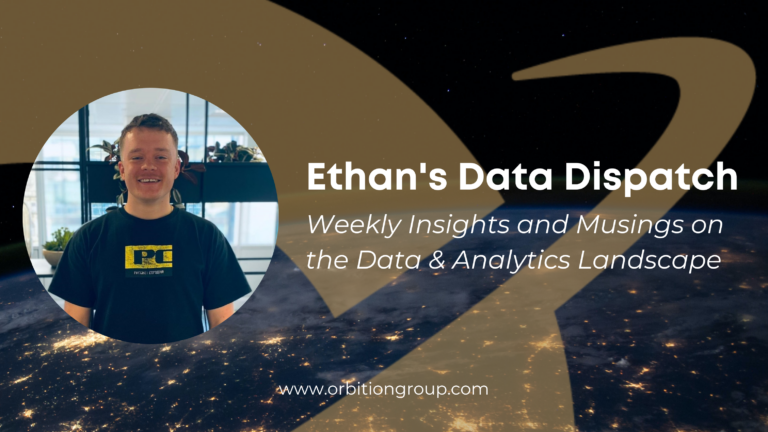
Data has been a vital aspect of businesses for a relatively short amount of time, but how do you harness the ROI of your data?
In the relatively short time that data has been a vital tool for businesses to harness, our lives have changed in a big way. There have been scandals surrounding data privacy, and hysteria around emerging technologies harnessing your data. We’re now seeing a growing number of innovations in working with data that are designed to improve our everyday lives. From taking control of our own data and monetising it to advances in AI and automation, the impact that data has on our lives is ever-increasing.
So where exactly is data helping us?
Let’s start with the obvious one: AI. I don’t think there’s any way to argue against AI being disruptive. In the small amount of time we’ve had to play with generative AI, social media feeds are teeming with AI creations and more people have questions about their job security.
There’s been some negative reaction, particularly around education. School kids using AI to complete to ‘cheat’ their way to an answer. Well, if I was in school and was caught using AI, I’d claim the ol’ “using my initiative” response. If what we’re hearing about job roles not being lost to AI but rather to “someone that can use AI to do your job better” is true, then surely these kids are a shoe-in.
Education is also likely to benefit from AI. Aside from the obvious areas, like admin, lessons could also be tailored to individual children, along with homework. This could make lessons more engaging and remove the one-size-fits-all approach to education. With fewer teachers entering the system and classrooms getting larger, working with AI sounds like a great idea.
Financial services is an industry that has been able to use its data to improve people’s lives in various ways. I had an interesting chat with Jason Capehart, Head of Data Science & Machine Learning, Mission Lane, last week when we recorded an episode for the interview series, Fintech: Making Cents of Data. Mission Lane’s primary goal is to increase the accessibility of financial services for those who might previously have had limited access.
In a chance encounter on the phone when discussing health insurance with an agent, Jason’s wife mentioned that their insurance was provided by the company her husband worked for, Mission Lane, and the agent couldn’t believe it.
It had been Mission Lane that helped the agent on the phone through a very difficult bankruptcy. After numerous attempts to rebuild credit, no one would help them until they found Mission Lane. The credit card issued by Mission Lane made it possible for them to rebuild, including renting a car to attend their son’s graduation.
There are so many other ways data is helping improve people’s lives, and so many ways that you can harness the ROI of your data. The rise in ESG considerations is shaping up to be a huge factor for the future of investing; automation with machine learning and chatbots is shaving hours from our day; even using phone data to locate people after natural disasters – the list is endless.
The question is: what is the trade-off?
Are we going to become a super-surveillance society as we’ve seen in other parts of the world? There’s already a multi-billion pound business made from ransomware, will this get worse? Could generative AI and deep fakes blur the lines between what’s real and what’s not?
What are your thoughts?

Ethan Simpkin
Ethan is a highly skilled consultant with us here at Orbition, specializing in data and analytics.
With a passion for technology and a natural talent for identifying top talent, he has become a valuable asset to both clients and candidates in the industry.Read more.


